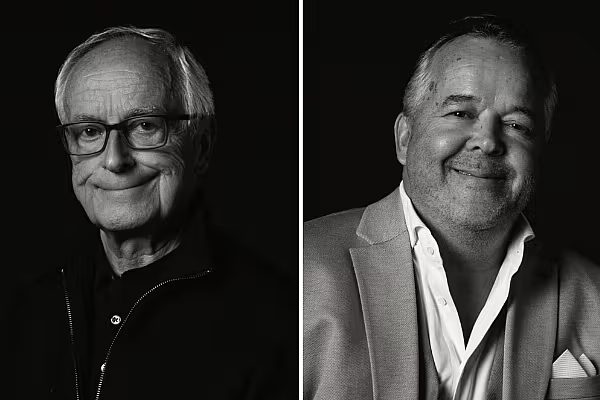ESM speaks to Reg and Ronald Nelemans of FashionPower, about how the company has put sustainability and the circular economy at its heart.
The fashion industry isn’t renowned for putting sustainability front and centre, but by providing a range of eco-conscious clothing options that align with consumers’ ethical values as well as delivering the performance and affordability they’ve come to expect from conventional products, FashionPower is seeking to rewrite the script.
The FashionPower range includes sportswear, under the RedMax brand; Jack in a Bag, which offers waterproof rain jackets, as well as padded jackets and bodywarmers; and EeCoff, its new corporate clothing brand, which includes everything from undergarments to T-shirts to sweaters.
At the heart of its proposition is a series of revolutionary, environmentally-friendly production techniques – as well as repurposing coffee waste into fabric materials, the company also uses a dope dye technique (saving 90% of the water used in cotton production), as well as recycled polyester, which can be recycled time and again with no loss in performance.
In addition, the natural fibres are a substitution for chemicals, and are used to add extra functionality to its garments, including UV-protection, odour-reduction, dry-coolness, anti-allergic properties and improved breathability.
“When people talk about sustainable cotton, or wool, or viscose, it’s not a true claim, as you cannot recycle these materials into new garments,” says Reg Nelemans, who runs FashionPower alongside his brother Ronald, with whom he co-founded the company. “With polyester, 100% of garments can be made into garments again.
“Most people say, ‘oh, that’s interesting’, but they stick with cotton, thinking that some time in the future there will be a sustainable solution using cotton. But when? They do what they have always done, and they get what they have always got.”
Nothing Goes To Waste
In order to start sourcing its own coffee residue, FashionPower started to develop a cooperation with a Belgian firm, which collects the material from universities and hospitals. At first, the fat is extracted, for use in candle and make up production; the remaining material can be used by FashionPower for the use in its fabrics. The ultimate goal is to reach a ‘closed loop’ system, where the coffee waste from consumers results in garments they use for an active life.
“Even the part that traditionally would have been thrown away, which we cannot use in our own production, can be used,” says Reg. “Therefore, we can say with authority that for the future nothing will get wasted.”
Recycling Regulations
The use of recycled materials is particularly notable given Europe’s pledge to achieve climate neutrality and halt biodiversity loss by 2050, with the need to transition to a circular economy a core target. With this in mind, several European countries have put in place time-specific targets on the way to achieving this goal – in the Netherlands, for example, legislation requires that 30% of clothing production should come from recycled materials by 2025 – in other words, just over a year away.
“I think the actual figure is currently at around 1%,” says Reg. “That means that a lot of companies need to find a Plan B, or face fines.”
“We regularly talk to sustainability and responsibility executives at other companies,” adds Ronald Nelemans, commercial director. “They can see that we are much further along the journey than themselves, and the requirements are only going to get more stringent. To be honest, Reg could be consulting with the European Union on this.”
Pricing And Performance
FashionPower remains focused on refining and expanding its product range with consistent, innovative launches that adhere to the principles of sustainability, while also keeping pace with market demands and evolving consumer preferences.
“We don’t want to produce something which is not workable in the end, or that requires us to keep on trying, trying, trying,” says Reg. “When we talk to other clothing manufacturers, they think in dreams – ‘maybe it’s possible’, or ‘we are working on it’, or ‘it will change, and it will be different’. But I don’t believe in fairy tales anymore.”
Learn more at www.fashionpower.eu.
This article was written in partnership with FashonPower.














